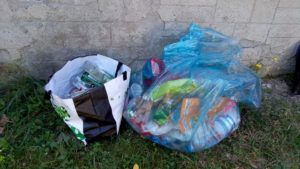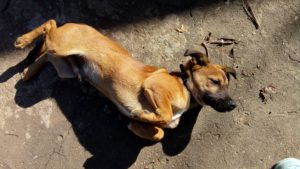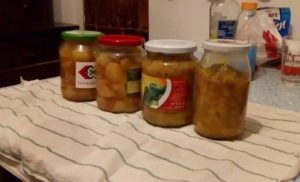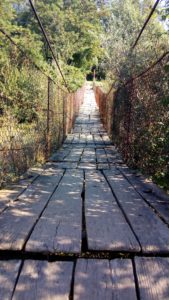Small everyday things that make a difference for the planet / Mici lucruri din viața de zi cu zi care fac o diferență pentru planetă
[EN] Embarking on an environmental volunteering project is something very personal. This is not a regular job that I do from 8 to 5 and forget about it for the rest of the day. It reflects my values, my desired way of life. Therefore, when I came to Romania and started working on this project, I also started thinking about my daily life and my routines. And I discovered plenty of situations where I was behaving unsustainably, because of routines that I follow without thinking, and things I do out of laziness or comfort or because I simply don’t know any other solution. And so, I started observing and changing small things in my daily life. At first it seemed to be a big deal to change routines, but if done in the right way, step by step the new behaviour becomes the routine, and things are getting done automatically.
But let’s keep it concrete, and stick to some examples from my daily life here in Izvoarele.
 When I moved in, recycling was something that was done, but not well done. The closest recycling bins are 700 meters away, so it was easier to throw most of the stuff into the wet waste, which is collected once a week. All you have to do is to put the container on the street. And although I was used to recycling back home in Portugal, I found myself adapting to my housemates’ behaviour. When the commune introduced the blue bags for plastic and metal that are collected every two weeks, we took it as an impetus to rethink our household and started separating wet waste, organic, blue bag, glass and paper. All it took was to think a bit about what waste we produce and where in the house.
When I moved in, recycling was something that was done, but not well done. The closest recycling bins are 700 meters away, so it was easier to throw most of the stuff into the wet waste, which is collected once a week. All you have to do is to put the container on the street. And although I was used to recycling back home in Portugal, I found myself adapting to my housemates’ behaviour. When the commune introduced the blue bags for plastic and metal that are collected every two weeks, we took it as an impetus to rethink our household and started separating wet waste, organic, blue bag, glass and paper. All it took was to think a bit about what waste we produce and where in the house.
The main stake of our waste is produced while cooking/eating, so placing the organic waste and recycling bins in the kitchen or nearby makes sense. If they are on the other side of the house, the trash is more likely to end in the wet waste that is handily located under the sink. After all, in our daily routines we intuitively do the easiest and most comfortable thing.
 We have a dog, so it makes sense to have a bin for the empty food cans and bags somewhere near the feeding bowl. In the rooms, the trash mainly consists of old papers and bills, so we put small boxes for paper there. We also put a box in the bathroom for the empty toilet paper rolls. Once we figured where to put which bins, recycling became an easy task, a natural routine.
We have a dog, so it makes sense to have a bin for the empty food cans and bags somewhere near the feeding bowl. In the rooms, the trash mainly consists of old papers and bills, so we put small boxes for paper there. We also put a box in the bathroom for the empty toilet paper rolls. Once we figured where to put which bins, recycling became an easy task, a natural routine.
Some of the materials we consider waste are actually reusable. For example, whenever I am going somewhere and need to take something to drink, I fill a glass bottle with tap water. And we save all the jars, wash them and put jam or other stuff inside. Paper is saved to start fire in the ovens in winter, carton boxes are used for shopping and to collect fruits.
As we decided to collect our organic waste separately, the question arose of what to do with it as there is no separate collection of organic waste in Romania (currently, in only 8 European countries organic waste is collected by the communes [1]). But as we live on the countryside and have a big garden, we decided to start composting.
 Our garden has some fruit trees, and lately we have been flooded with pears, apples and prunes. Adrianna started to make jam and compote out of them. And there is no reason why we shouldn’t: it’s free, it’s healthy, it’s tasty. But well, it requires work. And when Adrianna left, no one took over this task, so that a lot of the fruits were just rotting on the ground. At some point we started picking them up and storing them in the basement (hoping that it is cold and dry enough) and we figured out that it is not that hard to handle them. There are plenty of ways to make them storable: besides jam and compote, we can make dry fruits, juice, pies…
Our garden has some fruit trees, and lately we have been flooded with pears, apples and prunes. Adrianna started to make jam and compote out of them. And there is no reason why we shouldn’t: it’s free, it’s healthy, it’s tasty. But well, it requires work. And when Adrianna left, no one took over this task, so that a lot of the fruits were just rotting on the ground. At some point we started picking them up and storing them in the basement (hoping that it is cold and dry enough) and we figured out that it is not that hard to handle them. There are plenty of ways to make them storable: besides jam and compote, we can make dry fruits, juice, pies…
Not everyone has the garden, the patience or the time to grow their own food, but still we can be aware of what we eat and ask ourselves if it is worth buying imported products if there are national, even local ones available. Buying local products reduces the pollution from transport, besides helping the local economy. And so, slowly I grew the habit of checking the labels to see where the products come from. And at one point I decided to buy only fruits and vegetables grown in Romania, and after a while I extended this to dairy products and meat. I also started to go to the market and the butcher, as there the chances are higher to get local products.
Another important part of our daily routines is the way to work. In Portugal I mainly used the bicycle in my daily life, but in Izvoarele the roads are either full of traffic or in a desolate state. But walking to work turned out to be a good option as well, it frees my mind and it is healthy both for me and for the environment.
Of course, there are a lot more things that I can change in my daily life. My next goal is to reduce the amount of plastic waste I produce, so I will start bringing my own bags to the market, looking for eco-friendlier packaged products, and so on.
[1] https://www.compostnetwork.info/policy/biowaste-in-europe/separate-collection/
[RO]
Îmbarcarea într-un proiect de voluntariat în domeniul mediului e ceva foarte personal. Ăsta nu este un loc de muncă obișnuit la care mă duc de la 8 la 5 și de care uit pentru restul zilei. Îmi reflectă valorile, felul de viață pe care doresc să îl trăiesc. Așadar, când am venit în România și am început să lucrez la acest proiect, am început de asemenea să mă gândesc la viața mea de zi cu zi și la rutinele mele. Și am descoperit o mulțime de situații unde mă comportam nesustenabil, din cauza unor rutine pe care le aveam fără să mă gândesc la ele, și lucruri pe care le fac din lene sau comfort sau pentru că pur și simplu nu știu altă soluție. Și deci, am început să observ și să schimb mici lucruri în viața mea de zi cu zi. La început a părut să fie mare lucru să schimb rutine, dar dacă e făcut în modul potrivit, pas cu pas noul comportament devine rutină, iar lucrurile sunt făcute automat.
Dar să o ținem concret, și să rămânem pe niște exemple din viața mea de zi cu zi aici în Izvoarele.
 Când m-am mutat aici, reciclarea era ceva ce se făcea, dar nu se făcea bine. Cele mai apropiate coșuri de reciclare sunt la 700 de metri depărtare, așa că era mai ușor să arunc majoritatea lucrurilor în gunoiul menajer, care este colectat o dată pe săptămână. Tot ce trebuie să faci este să pui containerul pe stradă. Și deși eram obișnuit cu reciclarea acasă în Portugalia, am început să mă adaptez la comportamentul celor cu care locuiam. Când comuna a introdus sacii albaștrii pentru plastic și metal care sunt colectați odată la două săptămâni, am luat-o ca pe un imbold să regândim gospodăria noastră și am început să separăm gunoiul menajer, organic, sacul albastru, sticlă și hârtie. Tot ce a fost nevoie a fost să ne gândim puțin la ce gunoi producem și unde anume în casă.
Când m-am mutat aici, reciclarea era ceva ce se făcea, dar nu se făcea bine. Cele mai apropiate coșuri de reciclare sunt la 700 de metri depărtare, așa că era mai ușor să arunc majoritatea lucrurilor în gunoiul menajer, care este colectat o dată pe săptămână. Tot ce trebuie să faci este să pui containerul pe stradă. Și deși eram obișnuit cu reciclarea acasă în Portugalia, am început să mă adaptez la comportamentul celor cu care locuiam. Când comuna a introdus sacii albaștrii pentru plastic și metal care sunt colectați odată la două săptămâni, am luat-o ca pe un imbold să regândim gospodăria noastră și am început să separăm gunoiul menajer, organic, sacul albastru, sticlă și hârtie. Tot ce a fost nevoie a fost să ne gândim puțin la ce gunoi producem și unde anume în casă.
Cea mai mare porțiune din gunoiul nostru este produs gătind/mâncând, așa că să poziționăm deșeurile organice și coșurile de reciclare în bucătărie sau în apropiere are sens. Dacă se află în cealaltă parte a casei, gunoiul e mult mai probabil să ajungă în gunoiul menajar care e localizat la îndemână sub chiuvetă. La urma urmelor, în rutina noastră zilnică facem intuitiv cel mai ușor și mai comfortabil lucru.
 Avem un câine, așa că are sens să avem un coș pentru conservele și pungile goale de mâncare undeva lângă bolul unde îl hrănim. În camere, gunoiul e constituit în principal din hârtii vechi și facturi, așa că am pus mici cutii pentru hârtie acolo. Am pus de asemenea o cutie în baie pentru rolele goale de hârtie igienică. Odată ce ne-am dat seama unde să punem care coșuri, reciclarea a devenit o sarcină ușoară, o rutină ce ne vine în mod natural.
Avem un câine, așa că are sens să avem un coș pentru conservele și pungile goale de mâncare undeva lângă bolul unde îl hrănim. În camere, gunoiul e constituit în principal din hârtii vechi și facturi, așa că am pus mici cutii pentru hârtie acolo. Am pus de asemenea o cutie în baie pentru rolele goale de hârtie igienică. Odată ce ne-am dat seama unde să punem care coșuri, reciclarea a devenit o sarcină ușoară, o rutină ce ne vine în mod natural.
Unele din materialele pe care le considerăm gunoi sunt de fapt refolosibile. Spre exemplu, de fiecare dată când merg undeva și am nevoie să iau ceva de băut, umplu o sticlă de sticlă cu apă de la robinet. Și păstrăm toate borcanele, le spălăm și punem gem sau alte lucruri înăuntru. Hârtia este păstrată pentru a porni focuri în sobe iarna, cutiile de carton sunt folosite pentru cumpărături și pentru a colecta fructe.
Având în vedere că am decis să ne colectăm deșeurile organice separat, a răsărit întrebarea ce să facem cu ele având în vedere că nu există colectare separată a deșeurilor organice în România (în mod curent, în doar 8 țări Europene deșeurile organice sunt colectate de autorități locale [1]). Dar cum locuim la țară și avem o grădină mare, am decis să începem să facem compost.
 Grădina noastră are niște pomi fructiferi, și în ultima vreme am fost inundați cu pere, mere și prune. Adrianna a început să facă gem și compot din ele. Și nu e nici un motiv pentru care nu am face: e gratis, e sănătos, e gustos. Dar, însă, necesită muncă. Și când Adrianna a plecat, nimeni nu a preluat această sarcină, așa că o grămadă din fructe pur și simplu putrezeau pe jos. La un moment dat am început să le adunăm și să le depozităm în pivniță (sperând că e suficient de rece și uscat) și ne-am dat seama că nu e așa greu să ne ocupăm de ele. Există destule feluri prin care să le facem depozitabile: pe lângă gem și compot, putem face fructe uscate, suc, plăcinte…
Grădina noastră are niște pomi fructiferi, și în ultima vreme am fost inundați cu pere, mere și prune. Adrianna a început să facă gem și compot din ele. Și nu e nici un motiv pentru care nu am face: e gratis, e sănătos, e gustos. Dar, însă, necesită muncă. Și când Adrianna a plecat, nimeni nu a preluat această sarcină, așa că o grămadă din fructe pur și simplu putrezeau pe jos. La un moment dat am început să le adunăm și să le depozităm în pivniță (sperând că e suficient de rece și uscat) și ne-am dat seama că nu e așa greu să ne ocupăm de ele. Există destule feluri prin care să le facem depozitabile: pe lângă gem și compot, putem face fructe uscate, suc, plăcinte…
Nu toată lumea are grădina, răbdarea sau timpul să își crească propria mâncare, însă tot putem fi conștienți de ceea ce mâncăm și ne putem întreba dacă merită să cumpărăm produse importate dacă sunt unele naționale, chiar locale disponibile. Cumpăratul de produse locale reduce poluarea din transport, pe lângă că ajută economia locală. Și așadar, încetișor am dezvoltat obiceiul de a verifica etichetele pentru a vedea de unde vin produsele. La un moment dat am decis să cumpăr doar fructe și legume crescute în România, și după o vreme am extins asta și la produse lactate și carne. Am început de asemenea să mă duc la piață și la măcelar, șansele de a găsi produse locale fiind mai mari acolo.
 O altă parte importantă din rutina noastră zilnică este drumul către muncă. În Portugalia foloseam în principal bicicleta în viața mea de zi cu zi, dar în Izvoarele drumurile sunt ori pline de trafic ori într-o stare proastă. Dar mersul pe jos la muncă s-a dovedit a fi o opțiune bună de asemenea, îmi eliberează mintea și este sănătos atât pentru mine cât și pentru mediu.
O altă parte importantă din rutina noastră zilnică este drumul către muncă. În Portugalia foloseam în principal bicicleta în viața mea de zi cu zi, dar în Izvoarele drumurile sunt ori pline de trafic ori într-o stare proastă. Dar mersul pe jos la muncă s-a dovedit a fi o opțiune bună de asemenea, îmi eliberează mintea și este sănătos atât pentru mine cât și pentru mediu.
Desigur, mai sunt multe lucruri pe care le pot schimba în viața mea de zi cu zi. Următorul meu țel este să reduc cantitatea de deșeuri din plastic pe care o produc, așa că voi începe să îmi aduc propriile pungi la magazin, mă voi uita după produse ambalate mai prietenoase cu mediul (eco-friendly), și așa mai departe.
[1] https://www.compostnetwork.info/policy/biowaste-in-europe/separate-collection/
Tim este în România pentru o perioadă de șapte luni, din mai 2018 până în noiembrie 2018, în cadrul proiectului Building Youth supportive Communities – Environment [2017-2-RO01-KA105-037748] proiect co-finanțat de Uniunea Europeană prin Programul Erasmus+ și implementat în România de către Curba de Cultură.
About the author